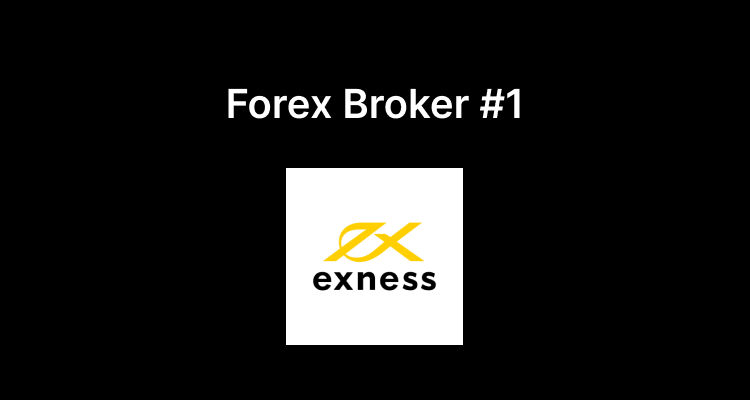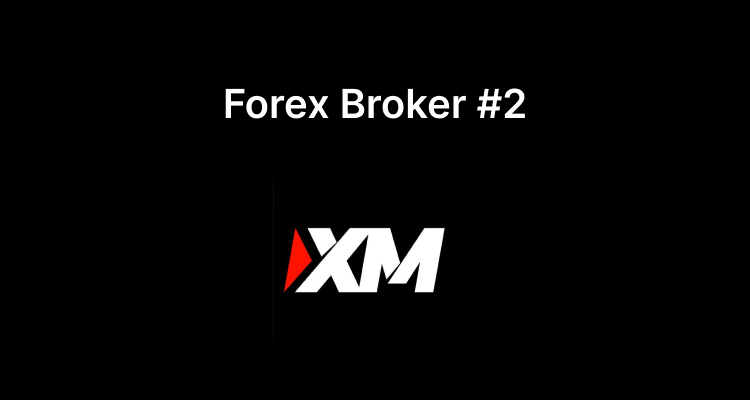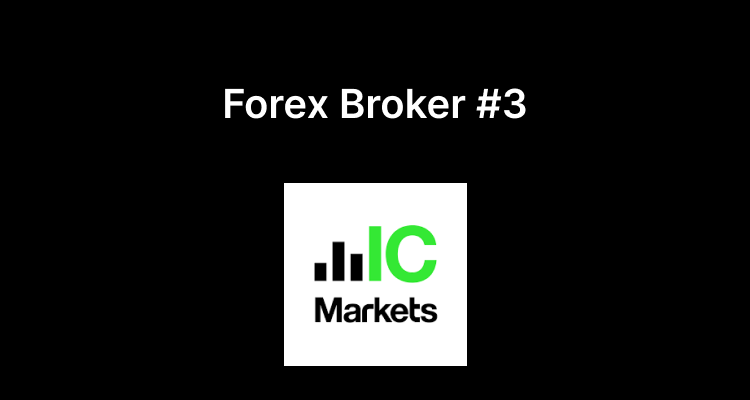- Best Forex Broker by Trade-rebate.com
- Exness Forex – overall number 1
- XM Forex – overall number 2
- IC Markets – overall number 3
- Understanding the Basics of Forex Trading
- What is Forex Trading?
- Why is Forex Trading Popular?
- Major, Minor, and Exotic Pairs for trading.
- The Role of Forex Brokers.
- Types of Forex Brokers
- Market Makers (MM)
- Electronic Communications Network (ECN) Brokers
- Straight Through Processing (STP) Brokers
- Hybrid Brokers (Combination of MM, ECN, STP)
- Key Factors to Consider When Choosing a Forex Broker
- Regulation and Licensing
- Trading Platforms and Technology
- Fees and Commissions
- Customer Service
- Account Types and Customization
- Additional Features
- Safety of Funds
- Segregated Accounts
- Membership with Compensation Schemes
- Regular Audits
- Advanced Encryption and Cybersecurity Measures
- Risk Management Tools
- Conclusion
The world of forex trading is vast and ever-evolving. With the increasing number of brokers available, making the right choice can be a daunting task. But fear not! This comprehensive guide on how to choose the best forex broker in 2023 is here to help. Whether you’re a seasoned trader or just starting out, these insights will pave the way for a successful trading journey.
Forex trading has seen significant growth over the years, and with it, the emergence of numerous brokers vying for your attention. But how do you sift through the noise and select the best one for your needs?
Best Forex Broker by Trade-rebate.com
Exness Forex – overall number 1

Exness is a reputable online forex broker that offers trading services to clients in over 180 countries. They provide a user-friendly trading platform with various account types and flexible leverage options. Exness also offers clients access to a range of financial instruments, including forex, cryptocurrencies, and commodities. Login Exness to get best trading experience on the market.
Overall, Exness is a reliable choice for traders looking for a trustworthy broker with competitive trading conditions.
XM Forex – overall number 2

XM Forex Broker is a well-established and reputable broker that offers a range of trading services to clients worldwide. With competitive trading conditions, a variety of trading platforms, and a diverse range of trading instruments, XM Forex Broker provides clients with the tools and resources to trade with confidence and success.
Whether you’re a beginner or an experienced trader, XM Forex Broker is a reliable and trusted broker that can help you achieve your trading goals.
IC Markets – overall number 3

IC Markets stands out as a highly regarded broker in the forex landscape. Their commitment to transparency and competitive trading conditions has garnered them a strong reputation. Many traders consider them a top choice due to their consistent reliability and advanced trading features.
IC Markets is a reputable and trusted broker, renowned for its transparent trading environment and competitive offerings in the forex industry.
Understanding the Basics of Forex Trading
The foreign exchange market, commonly known as Forex, is a global marketplace where currencies are traded. It’s a complex and multifaceted domain, but understanding its basics is crucial for anyone looking to venture into forex trading.
What is Forex Trading?
Forex trading, at its core, is the act of buying one currency while simultaneously selling another. This is primarily done in currency pairs, such as EUR/USD or GBP/JPY. The objective is to profit from the changes in the value of one currency relative to the other.
Why is Forex Trading Popular?
Accessibility. One of the primary reasons for the popularity of forex trading is its accessibility. Unlike stock markets, which have specific opening and closing times, the forex market operates 24 hours a day, five days a week. This allows traders from all over the world to trade at their convenience.
Liquidity. Forex is the most liquid market in the world. This means that large volumes of currency can be traded without significantly impacting the price, ensuring that traders can execute their trades at their desired price levels.
Leverage. Forex trading offers significant leverage, meaning traders can control a large position with a relatively small amount of capital. This amplifies both potential profits and potential losses, making it essential for traders to manage their risks effectively.
Diverse Trading Opportunities. With a multitude of currency pairs to trade, forex offers a wide range of trading opportunities. Whether economies are booming or facing recessions, there’s always potential for profit in forex.
Major, Minor, and Exotic Pairs for trading.
In the forex market, currency pairs are categorized into three main groups:
Major Pairs. These are the most traded currency pairs in the world, typically involving the US dollar. Examples include EUR/USD, USD/JPY, and GBP/USD.
Minor Pairs. These pairs don’t include the US dollar but involve major global currencies. Examples are EUR/GBP and GBP/JPY.
Exotic Pairs: These involve one major currency and one from a developing economy. They tend to be less liquid and have higher spreads. Examples include USD/TRY (US dollar/Turkish lira) and EUR/ZAR (Euro/South African rand).
The Role of Forex Brokers.
Forex brokers act as intermediaries between retail traders and the interbank forex market. They provide traders with access to a trading platform that allows them to buy and sell foreign currencies. Brokers make money through spreads and commissions on trades.
By understanding these foundational concepts, traders can navigate the forex market with greater confidence and clarity. Whether you’re trading major, minor, or exotic pairs, a solid grasp of the basics is essential for success.
Types of Forex Brokers
The forex market is vast, and so is the variety of brokers that cater to it. Understanding the different types of forex brokers is crucial as it can influence your trading experience, costs, and potential profitability. Here’s a comprehensive breakdown:
Market Makers (MM)
| Parameter | Description |
|---|---|
| Definition | Market Makers are brokers that create a market for their clients. They quote both a buy and a sell price, essentially “making the market” for traders. |
| How They Operate | MMs often take the opposite side of a client’s trade. If a trader goes long (buys) on a currency pair, the broker goes short (sells), and vice versa. This can sometimes create a conflict of interest. |
| Pros | Liquidity. MMs can provide high liquidity, ensuring trades are executed even in less liquid markets. |
| Fixed Spreads. They often offer fixed spreads, which can be advantageous during stable market conditions. | |
| Cons | Potential Conflict of Interest. Since they take the opposite side of trades, they might profit from client losses. |
| Price Re-quotes. In volatile markets, traders might face re-quotes, where the broker offers a new price for a trade. |
Electronic Communications Network (ECN) Brokers
| Parameter | Description |
|---|---|
| Definition | ECN brokers provide a direct connection between traders and liquidity providers in the forex market, such as banks and financial institutions. |
| How They Operate | ECN brokers aggregate price feeds from different liquidity providers, offering traders the best available bid and ask prices. They earn money through a commission on trades rather than the spread. |
| Pros | Transparent Pricing. Prices are derived from multiple sources, ensuring traders get the best available rates. |
| No Conflict of Interest. ECN brokers only act as intermediaries and don’t trade against their clients. | |
| Variable Spreads. Spreads can be tighter and more reflective of the actual market. | |
| Cons | Commission Costs. Traders pay a commission for each trade, which can add up. |
| Higher Initial Deposits. ECN accounts often require larger initial deposits compared to MM accounts. |
Straight Through Processing (STP) Brokers
| Parameter | Description |
|---|---|
| Definition | STP brokers send client orders directly to the interbank market without passing them through a dealing desk. |
| How They Operate | They connect traders with a network of liquidity providers, ensuring efficient trade execution without manual intervention. |
| Pros | Speedy Execution. Trades are processed instantly, reducing the likelihood of slippage. |
| No Re-quotes. Prices are final and don’t change once confirmed. | |
| Cons | Variable Spreads. Spreads can widen during major economic announcements or volatile market conditions. |
Hybrid Brokers (Combination of MM, ECN, STP)
| Parameter | Description |
|---|---|
| Definition | Some brokers combine features of MM, ECN, and STP models to offer a diverse range of services to their clients. |
| How They Operate | Depending on the account type or trading conditions, a trader might experience characteristics of MM or ECN/STP models. |
| Pros | Flexibility. Traders can choose account types that best suit their trading style and preferences. |
| Diverse Offerings. From fixed spreads to commission-based pricing, traders have multiple options. | |
| Cons | Potential Conflicts. Depending on the model applied, there might be potential conflicts of interest. |
When choosing a forex broker, it’s essential to understand their operational model and how it aligns with your trading goals. Each type has its advantages and drawbacks, so assess your priorities, risk tolerance, and trading strategy before making a decision.
Key Factors to Consider When Choosing a Forex Broker
Selecting the right forex broker is a pivotal decision that can significantly impact your trading experience and success. Here are the detailed aspects to consider:
Regulation and Licensing
Importance of Regulation. A regulated broker adheres to strict standards set by financial authorities, ensuring they operate with transparency and integrity. This offers traders a layer of protection against potential fraud and malpractice.
Checking Regulatory Status. Always verify a broker’s regulatory status by checking their registration number on the official website of the regulatory body. Top regulatory bodies include the U.S. Commodity Futures Trading Commission (CFTC), the UK’s Financial Conduct Authority (FCA), and the Australian Securities and Investments Commission (ASIC).
Trading Platforms and Technology
Platform Usability. The trading platform should be user-friendly, intuitive, and stable. Many traders prefer platforms like MetaTrader 4 or MetaTrader 5 for their reliability and extensive features.
Technical Tools and Indicators. A good platform offers a variety of technical analysis tools and indicators to help traders make informed decisions.
Mobile Trading. In today’s fast-paced world, having a robust mobile trading app allows traders to manage and execute trades on the go.
Fees and Commissions
Spread. This is the difference between the bid and ask price of a currency pair. Some brokers offer fixed spreads, while others offer variable spreads that can widen during volatile market conditions.
Commission. Some brokers charge a commission per trade, while others incorporate their fees into the spread. It’s essential to understand the fee structure and calculate the overall cost of trading.
Overnight Fees. If you hold a position overnight, you might be charged a swap or rollover fee. Ensure you’re aware of these charges, especially if you’re a swing or position trader.
Customer Service
Availability. A broker’s support team should be available 24/5, given the forex market’s operating hours. Some brokers also offer weekend support.
Communication Channels. Multiple channels, such as live chat, email, and phone support, ensure you can reach the broker in your preferred way.
Response Time. In the fast-moving world of forex, timely support can make a significant difference. Test the broker’s response time before committing.
Account Types and Customization
Variety of Accounts. Brokers often offer different account types, catering to various trader needs. This could range from micro accounts for beginners to VIP accounts for professional traders.
Minimum Deposit. Consider the minimum deposit requirement. Some brokers allow traders to start with as little as $10, while others might require a more substantial initial investment.
Leverage and Margin. Brokers offer different leverage levels. While higher leverage can amplify profits, it also increases potential losses. Ensure the broker’s offerings align with your risk appetite.
Additional Features
Educational Resources. Especially beneficial for beginners, resources like webinars, tutorials, and market analysis can enhance your trading knowledge.
Research Tools. Access to up-to-date news, economic calendars, and market analysis can provide traders with a competitive edge.
By meticulously evaluating these factors, traders can find a broker that aligns with their trading style, goals, and risk tolerance. Remember, the right broker is not just about low fees but about a holistic trading environment that fosters growth and success.
Safety of Funds
In the world of forex trading, ensuring the safety of your funds is paramount. With numerous brokers in the market, some of which might not operate with the highest integrity, understanding how your funds are protected becomes crucial. Here’s a comprehensive look at the measures and mechanisms in place to safeguard trader funds:
Segregated Accounts
| Parameter | Description |
|---|---|
| Definition | Segregated accounts are separate bank accounts where brokers keep client funds distinct from the broker’s operational funds. |
| Purpose | This ensures that even if the broker faces financial difficulties or declares bankruptcy, client funds remain untouched and can be returned to the traders. |
| Benefits | Protection from Misuse. Brokers cannot use client funds for their business operations. |
| Ease of Refunds. In case of broker insolvency, returning funds to clients becomes more straightforward. |
Membership with Compensation Schemes
| Parameter | Description |
|---|---|
| Definition | Many regulatory bodies have compensation schemes that act as insurance for traders’ funds if a broker becomes insolvent. |
| Examples | The Financial Services Compensation Scheme (FSCS) in the UK covers investments up to £85,000. |
| The Investor Compensation Fund (ICF) in Cyprus covers investments up to €20,000. | |
| Benefits | Financial Recourse. Traders have a safety net and can claim compensation if their broker faces insolvency. |
| Boosted Confidence. Knowing there’s a backup can boost trader confidence in the forex market. |
Regular Audits
| Parameter | Description |
|---|---|
| Definition | Regular audits involve third-party financial experts reviewing a broker’s financial statements and operations. |
| Purpose | To ensure that the broker is adhering to financial standards, regulations, and is not involved in any malpractices. |
| Benefits | Transparency. Regular audits ensure brokers maintain transparency in their operations. |
| Trustworthiness. Brokers that willingly undergo audits and share results are often more trustworthy. |
Advanced Encryption and Cybersecurity Measures
| Parameter | Description |
|---|---|
| Definition | These are technological safeguards to protect client data and funds from cyber threats. |
| Features | SSL encryption for data transfer. |
| Two-factor authentication for account logins. | |
| Regular security updates and patches. | |
| Benefits | Data Protection. Ensures personal and financial data of clients remain confidential. |
| Prevention of Unauthorized Access. Reduces the risk of hacking and unauthorized fund withdrawals. |
Risk Management Tools
| Parameter | Description |
|---|---|
| Definition | Tools provided by brokers to help traders manage their trading risks effectively. |
| Examples | Stop-loss orders to limit potential losses. |
| Negative balance protection to prevent traders from going into debt. | |
| Benefits | Controlled Trading. Allows traders to set boundaries on potential losses. |
| Protection from Volatile Markets. In case of extreme market volatility, these tools can prevent significant financial damage. |
Ensuring the safety of funds is a shared responsibility between brokers and traders. While brokers provide mechanisms and tools, traders must stay informed, use available protections, and choose brokers with a proven track record of integrity and transparency.
Conclusion
Choosing the best forex broker in 2023 requires thorough research and a clear understanding of your trading needs. By considering the factors mentioned above and staying updated with the latest market trends, you can make an informed decision and embark on a successful trading journey.
Forex trading is risky and may result in significant financial loss. It is important to carefully consider the risks involved before making any trades.
We're dedicated to providing you with the best tools and knowledge for a great trading experience. Let us know if we can help you in any way. Happy trading!